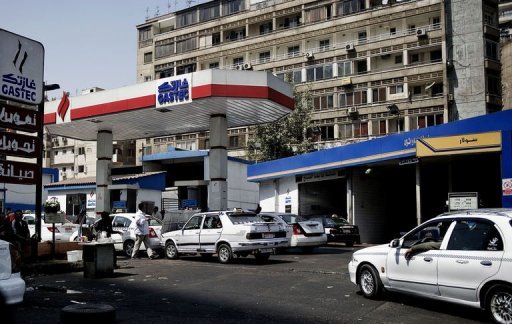The Ministry of Petroleum expects the consumption of petroleum products to increase by 4% annually until fiscal year 2019/2020, according to data from the ministry.
The data showed that local consumption of fuel will increase throughout the next fiscal year by 4%, reaching 7.76m tonnes, compared to 7.46m tonnes expected during this fiscal year. Consumption during fiscal year 2019/2020 will increase to 8m tonnes.
According to the data, Egypt’s production of fuel will increase by 2019/2020 by nearly 3.2m tonnes, reaching 7.6m tonnes, reducing the deficit between production and consumption to nearly 0.3m tonnes, representing 3.8%.
The Egyptian General Petroleum Corporation is working to develop Egyptian refineries with $12.6bn, increasing the production capacities of Egyptian refineries to 41m tonnes. Egypt has about eight refineries with a production capacity estimated at 38m tonnes, with about 25m tonnes consumed annually.
In terms of diesel, the Ministry of Petroleum expects local consumption of it to reach 15.466m tonnes during this fiscal year. It is expected to increase next year by 4%, to reach 16.084m tonnes, then to 16.8m tonnes by FY 2019/2020.
According to the data, local production of diesel will increase by 6.8m tonnes in 2019/2020, reaching 14.7m tonnes, reducing the gap between production and consumption to nearly 2.1m tonnes, representing 12.5%.
The Ministry of Petroleum expects the annual consumption of the local market of butane to decline by 2%, reaching 4.12m tonnes this fiscal year, and 4.03m tonnes next fiscal year. It is expected to reach 3.9m tonnes during fiscal year 2019/2020.
The ministry is working to reduce butane consumption through expanding the usage of natural gas in homes, as the ministry plans to deliver natural gas to 1m residential units in 26 governorates throughout the next fiscal year at a cost of EGP 4.2bn, making the total number of units that receive natural gas about 8m.
About 15 companies are working in the field of delivering natural gas, including nine companies from the private sector and six companies affiliated with the petroleum sector.
Egypt’s production of butane will increase by 0.52m tonnes by 2019/2020, reaching 2.6m tonnes, reducing the gap between production and consumption to 1.3m tonnes, representing 33.3%.
According to data of the Ministry of Petroleum, the size of local production of jet fuel will reach 0.61m tonnes this fiscal year and will increase next fiscal year by 4%, reaching 0.64m tonnes. In fiscal year 2019/2020, it will reach 0.67m tonnes.
Egypt’s production of jet fuel in 2019/2020 will increase by 1.6m tonnes to reach 4.1m tonnes, to achieve a surplus of production of nearly 3.43m tonnes, representing 512%.
The ministry is working to establish expansions in seven petroleum refining projects with investments worth $8.3bn in order to face the expected increase in the consumption of petroleum products over the next four years. Production from the new oil fuel hydrocracking complex is expected to begin during the third quarter of 2018, as the production of fuel would increase to 522,000 tonnes annually, along with 336,000 tonnes of light naphtha.
The complex’s annual production of diesel will reach 2.255m tonnes and butane production will reach 80,000 tonnes, while jet fuel will reach 600,000 tonnes.
The ministry aims to produce about 561,000 tonnes of diesel from the continuous catalyst regeneration (CCR) unit affiliated with the Alexandria National Refining and Petrochemicals Company (ANRPC) by mid next year, in addition to 10,000 produced tonnes of butane.
The annual production of fuel from the CCR unit affiliated with the Assiut Oil Refining Company (ASORC) will reach 603,000 tonnes, in addition to 40,000 tonnes of butane. Production is expected to start in April 2020.
According to data of the Ministry of Petroleum, the expansions of the Middle East Oil Refinery company (MIDOR) will contribute to increasing fuel production to 599,000 tonnes, diesel production to 1.22m tonnes, butane production to 194,000 tonnes, and jet fuel production to 838,000 tonnes. Expansions are expected to be completed and production is expected to start during the second half of 2020.
Production of oil fuel from the hydrocracking complex affiliated with ASORC will begin in July 2021, as its production of fuel will reach 411,000 tonnes, its production of diesel is expected to reach 2.806m, and its butane production is expected to reach 109,000 tonnes.
According to data of the Ministry of Petroleum, the asphalt production unit affiliated with the Suez Oil Processing Company will produce about 322,000 tonnes of diesel 24 months from the date of providing the funding to establish the project. In addition, a vapour recovery unit will be established, affiliated with the same company, making production of fuel reach 81,000 tonnes, while production of butane would reach 48,000 of butane 24 months from the date of providing the funding to establish the project.




